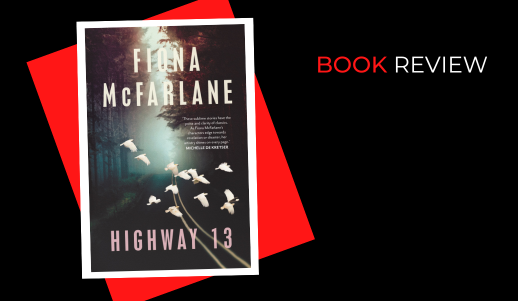by Fiona McFarlane
Publisher: Allen & Unwin, 2024
Publisher’s blurb
A gripping, haunting work about the reverberations of a serial killer’s crimes in the lives of everyday people.
In 1998, an apparently ordinary Australian man is arrested and charged with a series of brutal murders of backpackers along a highway. The news shocks the nation, bringing both horror and resolution to the victims’ families, but its impact travels even further – into the past, as the murders rewrite personal histories, and into the future, as true crime podcasts and biopics tell the story of the crimes.
Highway 13 takes murder as its starting point, but it unfolds to encompass much more: through the investigation of the aftermath of this violence across time and place, from the killer’s home town in country Australia to the tropical Far North, and to Texas and Rome, McFarlane presents an unforgettable, entrancing exploration of the way stories are told and spread, and at what cost.
From the acclaimed author of The Sun Walks Down and The Night Guest comes a captivating account of loss and fear, and their extended echoes in individual lives.
Review
by Christina Lee
Definitely one of the best books I have read this year. It was no surprise to learn that Fiona McFarlane was awarded the Voss Literary Prize for her first novel and has been shortlisted for nearly everything else (Miles Franklin, Stella, Queensland Literary Awards, Prime Minister’s Literary Awards, Guardian First Book Award…). Her writing combines luminous clarity with a spare economy of words, and the stories in this collection are powerful and compassionate illuminations of the humanity and distress of victims of violent crime.
The stories are haunting. Sometimes sad, sometimes scary, but always with a depth of characterisation and an imaginative strength that give them a powerful authenticity. The book takes as its starting point a lightly fictionalised version of the Belanglo murders – the vanished backpackers; the discovery of the bodies; the trial, imprisonment and later death of the serial killer. But the twelve loosely interconnected stories that make up the book scarcely mention the murders and their investigation. Rather, they explore the effects of the fictional event on people’s lives, from fear and grief, through casual crime tourism, to profit-making and gruesome fascination.
Each story imagines a person whose life has been touched by the events, some peripherally, some centrally. Some stories focus mainly on the protagonists’ lives beforehand, others on what happened afterwards. In some, the murders are a central, life-changing event; in others they are a background to defining events in the protagonists’ own histories. Stories range far and wide – a married couple whose lives crossed with one of the victims, an American true crime podcast, a young woman marrying to escape her own distressing circumstances.
The strength of the book lies in the humanity and respect that McFarlane brings to each story, her ability to inhabit the characters. Her subtle prose lets us understand how crime goes on affecting people across their entire lives. This book is a powerful reminder that murder and its investigation has lasting effects on everyone it touches, however lightly. It’s also a confronting reminder that crime fiction, as entertainment, in its heart relies on human suffering.
